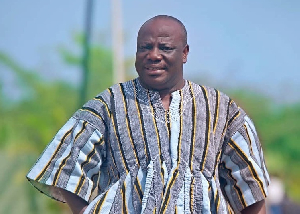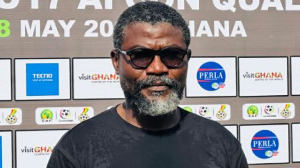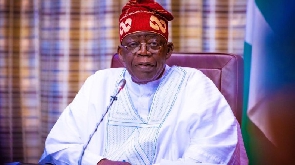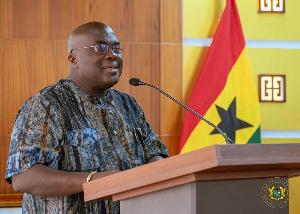Dr Peter .K. Obeng-Asamoa PhD
The author/columnist is the Executive Director of Ghana Blind Union who holds a Doctorate Degree from the University of Ghana. For some time now, he has been working with people with disability and therefore is qualified to offer suggestions on inclusive education needed to ensure that many disabled persons would become professionals and be able to hold their own in society: Now read on
In this modern world, it goes without saying that education is the key to development of every nation. Ghana is a nation that has chosen this path. In line with this, policies and programmes are being rolled out to ensure that our country moves along with the rest of the world in terms of use and access to quality education. As we roll out such policies and programmes it is of crucial importance however to ensure that those learners with disability or any form of special educational needs are not left behind in this regard.
The challenge we face as a nation is how to make education accessible and available to all children including those with disabilities and special educational needs. As stipulated by our 1992 constitution; Education is a fundamental right of all children including those with disabilities and special educational needs. This category of our citizenry also has the right to achieve their own aspirations and be given the chance to contribute to the development of the Nation. If this purpose is to be realized, it is apparent that the effort requires to be coordinated within the guiding framework of a National Policy. It is only then that Ghana as a Nation will be able to level the playing field and achieve equalization of opportunities for all segments of the populace.
In unison with other progressive nations of the world and in analysing our own situation as a nation, the most appropriate response to this situation is by adopting Inclusive Education as a strategy for development. Inclusive Education is an educational system where every child shares in all facets of the educational process with facilities that address the specific unique needs of the individual as a matter of basic rights and not charity. As such, each learner irrespective of disability or circumstance has an equal opportunity to reap maximum benefit from the educational system. This approach is about structuring the cultures, policies and practices in schools so that they respond to the diversity of needs in their locality. In effect, Inclusive Education is an approach that seeks to address the learning needs of all children, youth and adults with a specific focus on those who are vulnerable to marginalization and exclusion.
Over the years, the Government of Ghana through the Ministry of Education has explored various ways of meeting the education of persons with disability and those with special educational needs. In 1994, Ghana, along with other progressive nations, became signatory to the Salamanca Statement on Principles, Policy and Practice in Special Needs Education and a Framework for Action. This pledge is to set in motion mechanisms for creating an inclusive education system in Ghana. Stemming from this, the Government of Ghana through the Special Education Division of the Ghana Education service has implemented Inclusive Education on pilot basis in selected districts in three regions namely the Central, Greater Accra and Eastern Regions and later to the remaining 7 regions in the country. The pilot was based on best practices around the world. By the end of 2011, the Special Education Division had implemented Inclusive Education on pilot programmes in 529 schools in 34 districts. As a result of this pilot programme with technical, financial and logistical support, I. E implementation has been extended to 14 more districts bringing the I. E districts to 48. In the 14 focused districts, all schools in the districts are implementing I.E concept and practice. Itwas made apparent that there was need for a policy framework which would provide a more harmonized and strategic approach to planning and financial prioritization to roll out the necessary activities in order to reach all learners with special educational needs.
Today, Ghana as a nation has developed its own national policy on Inclusive Education. The policy marks a watershed in our educational process and will transform Ghana’s educational landscape for ever. Additionally, the policy will point the way in our quest to harness national resources for the development of this hitherto excluded section of our potential human resource. No doubt, Ghana has taken her rightful place in the community of progressive nations and subsequently, has proven her international and national commitments in respect to education for all persons. It is most appropriate to acknowledge the massive support provided to this entire process by development partners; Strengthening Transparency Accountability Responsiveness (STAR- Ghana) and the United Nations International Children Education Fund (UNICEF).. Ii is also important torecognised the contributions of civil society organisations like the Ghana Blind Union, Inclusion Ghana, World Education Inc.,National Education Coalition Commission and notable stakeholders like the Special Education Division of the Ghana Education Service and the Universities who diligently supported the Ministry of Education on this journey.
The policy will provide a guiding framework for the roll out of a system which takes into account the peculiar needs of all Ghanaian learners. Inter alia, this Policy acknowledges that:
• Every child has the right to quality education; thus all children should have equal opportunity to access education.
• All children can learn and benefit from education.
• No child should be excluded from, or discriminated against within, education on the grounds of race, colour, sex, language, age, class or social group, religion, political or other opinion, national, ethnic origin, poverty, disability, birth, or any other status.
• Changes need to be made throughout the educational system and with communities, to ensure that the education system adapts to the learner, rather than expecting the learner to adapt to the system.
• All aspects of education, including the curriculum, teaching methods, assessment, school culture and environments, present opportunities for promoting inclusion.
• Individual differences among learners are a source of richness and diversity and should be celebrated.
• The diversity of needs and patterns of development of children should be addressed through a wide and flexible range of responses.
• Regular schools with an Inclusive orientation are the most effective means of combating discrimination, building an inclusive society and achieving education for all.
• The need to promote a universal design for learning (UDL) and learner friendly and safe school environment.
• Training and development of all the human resource cadre or personnel in the education industry.
• Getting the resources to finance and sustain innovative Inclusive Education best practices.
At this juncture it is important to point out that the benefits to be derived from inclusive education makes it one of the most effective tools for national development. Firstly it allows government to provide facilities for all learners at a relatively lower cost. This is because they share the same facilities. Thus in one major plan, government can provide facilities that would meet the requirements of all segments of the population.
Again, with the adoption of inclusive education, where practicable, persons with disability will be educated alongside their non-disabled peers. In the quest for academic survival, learners with and without disabilities develop a mutual dependency. The appreciation and respect for each other takes the centre-stage. Issues stemming from misconceptions of disability are relegated to the background. Such a situation is indeed the first step towards the demolition of the social barrier.
Next, Inclusive education also allows for the educational process to be taken to the doorstep of the people by equipping the local schools with the facilities to enable them respond to the needs of the learners with special educational needs. Our practical experience as a nation shows that we cannot afford to limit the education of persons with disability to the walls of a few brick and tile institutions. As you may be aware, persons with disability and special educational needs are located all over the country at various places.Taking education to their doorstep has proved to be the most effective way of ensuring that they are not denied the basic right to education.
Dear readers, Inclusive Education will remain just a dreamif the requisite practical steps are not taken to enhance and ensure the implementation of the policy. This is crucial to address issues pertaining to the training of teachers and the provision of adequate support systems for the target groups. There is the need for the dedicated political will to guarantee effective implementation. Inclusive Education is the only way we as a nation can realize true and comprehensive national development that will ensure that all members of the social collective are part of the process.
Executive Director
Ghana Blind Union
Tel: +233244753570
Skype: pobengasamoa
Through :
EANFOWORLD FOR SUSTAINABLE DEVELOPMENT
0244 370345/ 0274853710/0208844791
abdulai.alhasan@gmail.com/eanfoworld@yahoo.com
Opinions of Monday, 6 June 2016
Columnist: Obeng-Asamoa, Peter .K.














